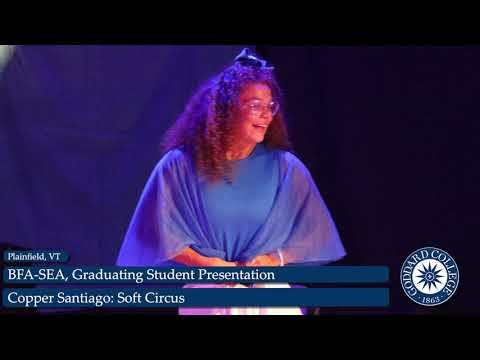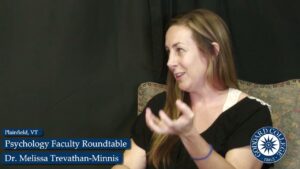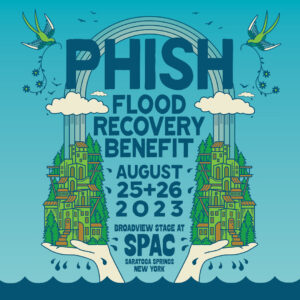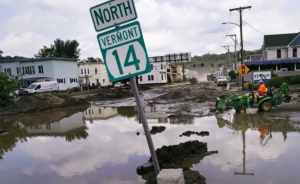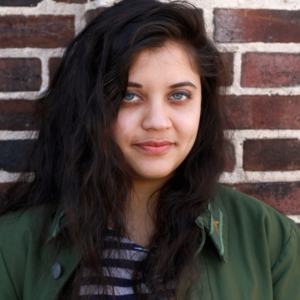
My name is June Artiles-Perry and I’m an undergrad at Goddard College studying Sustainability.
I was born and raised in Florida. I grew up in Malabar, on what was called “the Space Coast”. If the weather was right you could hear the rumble of the space shuttle launch at Cape Canaveral from my front yard.
I dropped out of school when I turned 16 and started bouncing around the couches and spare rooms of various friends and family before I moved west and worked a season at Grand Teton National Park. After that, I hitch-hiked through Yellowstone, Montana, and Canada.
By the time I got back to Florida, it was in the lead up to the Occupy Wall Street protests. I was living on a sidewalk in downtown Tampa for nearly a year. Despite the numerous political and cultural failings of the occupy movement, the time I spent there shaped my life substantially.
I met my partner Sashi who grew up in Tampa in August of 2018 and soon we welcomed our first child into the world.
A good friend of mine had recommended Goddard to me in the months before. The State College I was attending beforehand was an incredibly hostile environment for me and I decided that traditional educational models weren’t working.
I wanted a college experience that enabled me to do things that held value to me. I wanted to work in an environment that didn’t treat me like a subordinate and could recognize and celebrate my perspective. The work that I did in my first semester at Goddard set me on a path that has taken me on an incredible ride.

I found out about biochar accidentally, on wikipedia, in the aftermath of our practice of controlled burning for forest management. The ecology of Florida has a substantial relationship with fire which has been significantly disrupted by contemporary society. At the time, I was confident that simply restoring the carbon cycle was the best I could hope for. I knew I didn’t want to do slash and burn agriculture and I’d read a little about slash and char, but it didn’t seem like something I could emulate. We didn’t want to use chemical fertilizers but we were exhausted from hauling organic compost only to have the nutrition leech out anyway.
One day I happened to see a video demonstration of someone making charcoal for a historical forge and it all clicked.
During my first semester we got to make the first real biochar production experiment. I think we made something like 300 pounds for that project. We both made a lot of mistakes, learned a lot, and now our practice is better for it.

For example, right now one of the projects I’m working on is the Brevard Waterway A.R.T.E.R.Y. Program. It’s a municipal partnership opportunity for county residents to opt out of certain land management strategies utilized by local governments in places like drainage ditches and public access easements.
Sashi and I started Space Coast Carbon Solutions LLC the week before we left for residency. Our company is now a leading producer and distributor of BioChar in our area.
BioChar is the process by which carbon is inoculated by a poly-culture of soil microbiota then sequestered in the soil. The metabolic activity of these soil microbes help facilitate nutritional transfers between soil and plant roots while the carbon itself binds to nutrients and keeps them from leeching. Nutrient runoff from agriculture and landscaping has spurred algal blooms and fish kills all over the world, but Florida in particular has a long relationship with this kind of water pollution.
The Indian River Lagoon is a brackish water body that runs down the east coast of the state. In the last 100 years, the lagoon has seen numerous blooms and die offs. Even on the best days the smell coming off the water is unmistakable. The land management practices utilized not only by residential communities but by municipal authorities contributes substantially to the degradation of the ecosystem.
Space Coast Carbon Solutions LLC has partnered with area conservation organizations to use our biochar to help restore native mangrove species to the banks of the lagoon.
I never expected that I’d find myself writing public policy, but Goddard has pushed me to go beyond what I ever thought I’d achieve.
Thank you Goddard College.
Together for Goddard Stories tell how Goddard students are making an impact in the world today. Find out more about Goddard’s campaign: https://www.goddard.edu/together4goddard
Learn more about Space Coast Carbon Solutions LLC: www.spacecoastcarbonsolutions.com
To learn more about Goddard’s low-residency Bachelor of Arts in Sustainability and how it provides students the knowledge, skills, vision and values to help build a sustainable and just planet for present and future generations.

